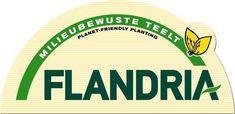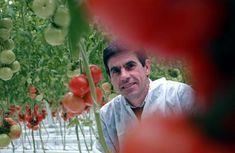

New basic specifications for Flandria producers are ready and will come into effect on January 1, 2005.
The new unified specifications are a direct result of new Belgian legislation on food safety and self-monitoring. They will come into effect on January 1, 2005 and will require producers to guarantee the food safety of their produce via traceability and self-monitoring. Producers who implement the new specifications will not only comply fully with the new legislation, but will also meet the existing higher quality standards of Flandria.
"We worked closely with the entire vegetable production sector in Belgium in drawing up the new Flandria basic specifications," said Raf De Blaiser, quality manager at LAVA. "Basically they're divided into two sections. The first section deals with all aspects of food safety and traceability, plus ICM (integrated crop management) methods. In other words, this section contains details of all the production conditions for supplying under the Flandria label. When we were working on this particular section we took the opportunity to put the various existing specifications in the Belgian vegetable sector (fresh produce, frozen produce, potatoes and soon other arable products) side by side.
“The result of this comparison is what is known as the IKKB standard. IKKB stands for Integrated Chain of Quality Control. This standard can be used by the various sub-sectors in the vegetable production sector. It complies will all aspects of the new legislation on food safety and traceability, grouped together in the 'Sector Guide',” added De Blaiser
“For example, the registration of all transactions, the hygiene regulations that apply for the various establishments and during transportation, the pre-harvest analyses of greenhouse leafy vegetables for nitrate residues, etc. By satisfying the requirements of this first section of the new specifications, producers will automatically comply with the new legislation on self-monitoring.
“The second section of the new specifications comprises Flandria's own requirements for each Flandria product with regard to premium quality, packaging and grading. This section therefore applies exclusively to the Flandria quality mark. All existing quality requirements from the previous specifications have been retained."
De Blaiser continued: "Flandria quality will be as high as ever. The production conditions will be just as stringent, although the emphasis will be slightly different (as far as food safety and hygiene are concerned, for example). It's also a huge advantage for the trade that there will be just one set of specifications in effect within the Belgian vegetable sector. Clarity and uniformity, in other words."
LAVA also expects few difficulties for individual quality-conscious Flandria growers. "Thanks to the previous specifications, our producers were already used to all those procedures with regard to food safety, traceability and integrated crop management. The main difference now is that not only the auctions but also every producer must be able to present a certificate for the IKKB standard. That's something else that offers the trade additional guarantees. Each individual grower can apply for certification by an independent, recognised body. Or it can be done on a group basis (for example by a growers' association)," said De Blaiser.



